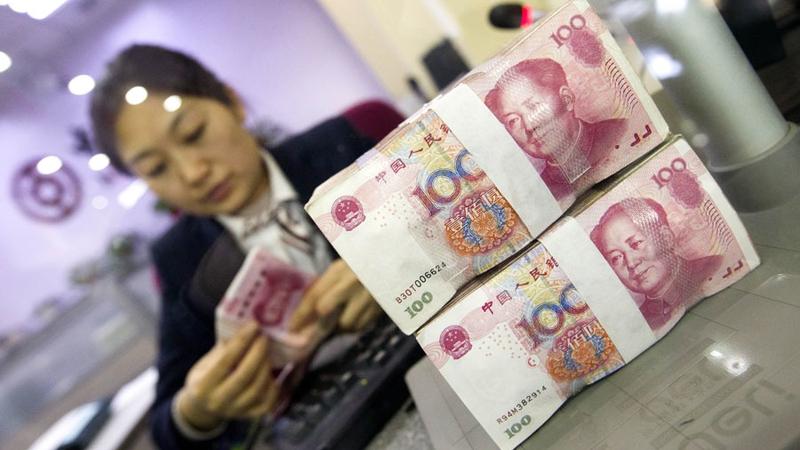 In this undated file photo, a bank teller in Taiyuan, Shanxi province counts renminbi notes. (PHOTO / CHINA NEWS SERVICE)
In this undated file photo, a bank teller in Taiyuan, Shanxi province counts renminbi notes. (PHOTO / CHINA NEWS SERVICE)
Policymakers have decided to optimize budget management and tighten debt financing regulations to prevent risks and improve fiscal sustainability, the Ministry of Finance said in a document published on its website on Tuesday.
The reform measures, which have been approved by the State Council, the nation's Cabinet, emphasize six key areas to further regulate the government's budget-making process.
The reform process has called for formulation of the revenue budget based on facts like the actual economic situation and results of tax and fee reductions.
Reforms will also pay attention to risk prevention and financial sustainability, especially in improving the debt financing mechanism according to laws. They will help curb the rise of local government implicit debt and maintain financial sustainability based on an institutional system.
Yang Zhiyong, researcher with the National Academy of Economic Strategy of the Chinese Academy of Social Sciences
Authorities have also emphasized on more risk prevention as the economic recovery has seen stable momentum this year. Some of the fiscal measures, such as temporary tax cuts, have ended, while other measures have been extended to further consolidate the recovery, experts said.
Budget reforms will focus on keeping the fiscal deficit and debt targets in line with the countercyclical adjustment of economic policies, which highlight efforts to keep leverage ratio at reasonable levels and reserve policy space to deal with changes in the economic cycle, the finance ministry said.
"Now and in a period of time in the future, China's fiscal condition is expected to be in a tight balance," said an official from the Ministry of Finance, who did not want to be identified. "As the reform is deepening, more issues related to budget management may be exposed."
In order to prevent potential debt risks, the reform guidance stressed that "local governments should strictly implement the source of repayment funds, scientifically calculate and evaluate the expected income for debt repayment and make feasible repayment plans that could be reflected in the medium-term fiscal program."
Local governments have also been encouraged to establish a provision system for paying debt, based on the fiscal revenue level, indicate the guidance, and improve the government debt risk assessment system.
ALSO READ: China's overall external debt risk 'controllable'
The reforms will also extend the government's financial information content. They will not only cover budgetary revenue and expenditure, but also include information on assets, liabilities, and investment. In addition, government procurements will support innovation and green development.
Yang Zhiyong, a researcher with the National Academy of Economic Strategy of the Chinese Academy of Social Sciences, said some problems in budget management need to be solved, such as the lack of coordination among various budgets, which has led to idle funds.
"Reforms will also pay attention to risk prevention and financial sustainability, especially in improving the debt financing mechanism according to laws. They will help curb the rise of local government implicit debt and maintain financial sustainability based on an institutional system," said Yang.
"Tight fiscal balance means that the government should further tighten the belt and standardize the management of budgetary expenditure. The document also highlighted the need to put risk prevention in a more prominent position to prevent systemic risks," said Yang.
In terms of fiscal policy, the government's deficit rate for this year has been set at around 3.2 percent, down from last year's 3.6 percent. Fitch Bohua, Fitch Rating's wholly owned unit in China, said maintaining the necessary spending level and gradually withdrawing from some of the short-term supportive measures implemented in 2020 due to COVID-19, will be the main objectives for this year.
"A key theme in this year's fiscal policy is the return to the pre-COVID long-term policy objectives, which include improving people's livelihood and promoting structural transformation of the economy," the ratings agency said.
READ MORE: Fiscal moves to cut risks, spur growth
The firm expects the government's fiscal spending to increase this year, with higher spending on long-term policy objectives. Government revenue will also improve on the back of the steady recovery in the economy.


